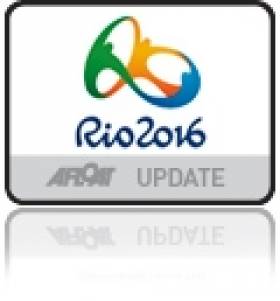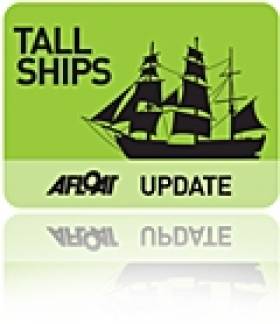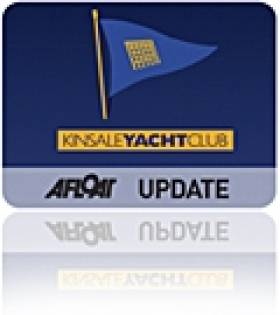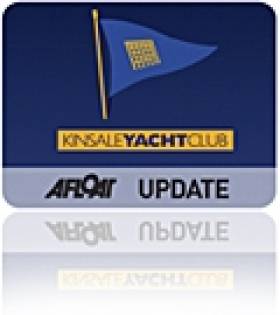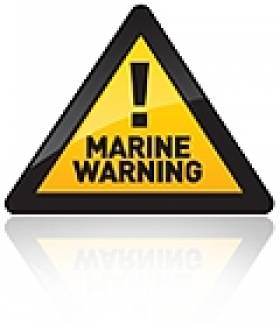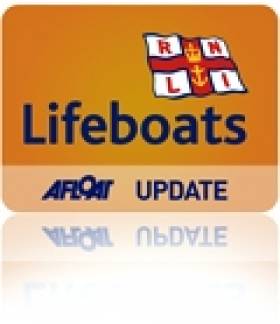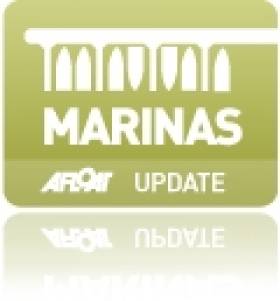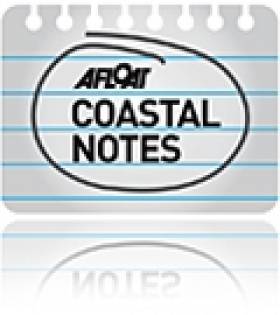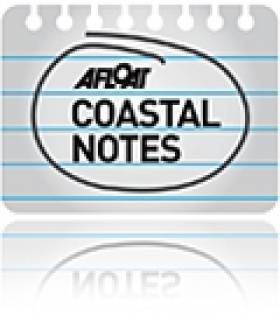Displaying items by tag: Kinsale
#IFDS – On the eve of the International Federation for Disabled sailing (IFDS) World Sailing Championships being staged in Kinsale, County Cork next month, its President, Irish Paralympian John Twomey, has warned of the potential bankruptcy of the world body arising out of substantial legal costs incurred in an action over the results of the Sonar class at the London 2012 Paralymics.
Writing in the association's latest newsletter Twomey, who became IFDS president at last November's ISAF world sailing conference in Dublin, says the costs involved are 'a major problem for IFDS as we do not currently have sufficient funds to pay for the fees and costs incurred without third party assistance'.
Twomey goes on to say 'the insufficiency of funds could in turn lead to the Executive Committee having to place IFDS in bankruptcy'.
IFDS met with ISAF in London on 2 July 2013 to discuss the possible integration of both organisations. The situation is ongoing, according to the Kinsale based President.
In the recent case, Twomey writes the Arbitrator upheld IFDS's initial contention that CAS lacked jurisdiction in this case and the result of the Sonar class at the London 2012 Paralympic stand. The arbitrator also ruled that the British Paralympic Association (BPA) must reimburse the other parties for the substantial fees paid to CAS, but that each party must pay its own legal fees and costs. In addition to legal fees, IFDS has incurred substantial costs for witness travel and other expenses.
To date entries have been received from 19 countries in the One-Person Keelboat, 2.4mR; 4 countries in the Two-Person Keelboat, SKUD18 and 12 countries in the Three-Person Keelboat, Sonar for the IFDS world championships to be held at Twomey's home waters of Kinsale in August.
Separately, this week the Irish Paralympic team signed a four year sponsorship deal with Providence Resources for the Rio Games.
Celtic Mist in Dun Laoghaire Ready For Gathering Cruise
#CelticMist - The Irish Whale and Dolphin Group's (IWDG) research yacht Celtic Mist is currently docked in Dun Laoghaire awaiting the start of The Gathering Cruise around Ireland.
As previously reported on Afloat.ie, the 19-day event will see some 100 cruising boats proceed along the east and south coasts of Ireland from Dublin to Cork and Kerry.
Along the way they will be recording any sightings of whales or dolphins along the way using forms supplied by the IWDG.
Celtic Mist will join the flotilla as it departs Dun Laoghaire Harbour on 18 July headed for Kinsale on 24 July, and a second leg from Kinsale to Dingle from 25 July to 1 August.
And the IWDG is currently offering places on board to all members for both week-long legs of the cruise.
The vessel has eight berths that will comfortably sleep a team of one skipper and seven crew - indeed, anyone taking up this offer will be expected to prepare meals and perform other sailing duties!
For more details on how to join The Gathering Cruise on board Celtic Mist, see the IWDG website HERE.
In the meantime, Celtic Mist is offering all IWDG members a chance to sail on day trips from Dun Laoghaire this week - email [email protected] for details.
Sovereign's Cup & 1720 Euro Sailing Instructions Here!
The sailing instructions for next Wednesday's Sovereign's Cup at Kinsale Yacht Club are now available.
As this year's Cup incorporates the 1720 European Championships, two separate sets of sailing instructions have been produced. Both sets are available to download below.
A team of international race officers will look after the combined fleets.
The 90-boats registered to date are spread across 16 classes with a healthy sprinkle of talent from both at home and overseas racing in each division. The regatta will be sailed across four different courses.
The windward/leeward course will be managed by Alan Crosbie with Jack Roy shepherding the round the cans course.
Peter Crowley has his hands full with both the 1720 and Quarter ton classes and Donal Hayes is looking after the White Sail division.
#SB20 – Perfect conditions awaited the 21 boat SB20 fleet this weekend at Kinsale for the Southern Championships hosted by Kinsale Yacht Club.
Blue Skies and light to medium Easterly breeze allowed the fleet at last to drop the thermal layers in favour of sun cream, shorts and T-shirts so often lacking on the circuit of late. The 6 race series over Saturday and Sunday was masterfully conducted on the water by PRO Tony Ireson and his team.
It was Scott McKeon on board Magic who got proceedings off to a fine start with a win in Race 1 closely followed by Darren Martin on board The Sloth in 2nd. Although Peter Kennedy on board Ridgefence got off to a slow start in race 1 he took line honours in Race 2 closely followed by the ever quick and consistent John O'Driscoll from RSGYC on Boomchicawahwah again with Darren Martin in the leading pack in 3rd.
Race 3 on Saturday was shortened due to a dying breeze. The fleet and PRO hoped a sea breeze would develop but this never materialised and as a result the final race favoured the lucky and frowned on the not so fortunate. Mel Collins from RCYC won this race with Peter Lee on Seriously Bonkers in 2nd and John O'Driscoll in third, thus leaving John as overnight leader.
The first race on Sunday again was won by Peter Kennedy, Stephen Kane and Bob Espey who were sporting a brand new set of the new Sportsboatworld Black sails which have been adopted by the class internationally. The sails are made of the same material as the white sails with a dye added which is claimed to offer better UV protection and longevity. If anything they're easy to spot on the race course.
Scott McKeon proved again to be slippy in the light breezed and won race 5 but the scene was being set behind the stage by the ever consistent Ben Duncan on Sharkbait who was now 1 point behind John O'Driscoll going into Race 6. BoomChicawahwah had to beat Sharkbait to ensure their win but this was not to be.
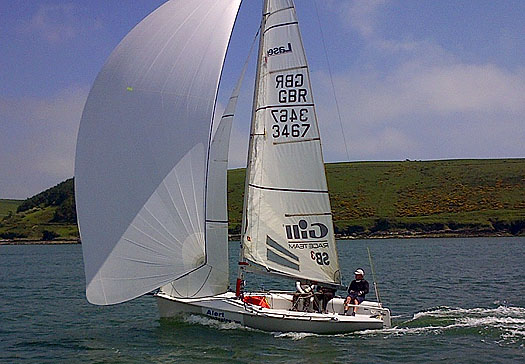
Despite PRO Tony Ireson's warning to the fleet, it was the 3rd Black Flag of the day that decided John's fate and he received an early shower instead. Duncan with John O'Driscoll sent home, had to place in the top 3 in the final race to win the event. Despite the attention of Scott McKeon and Darren Martin, Duncan managed to end in third behind Martin and HYC helm Keith Cassidy who had the final say and took line honours.
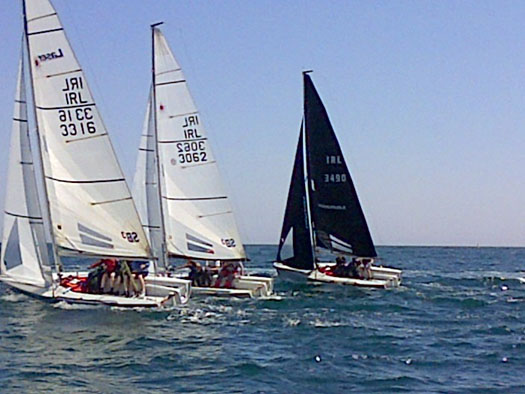
So Ben Duncan and team on Sharkbait retain the SB20 Southern Trophy and remarkably win their second event this year to John O'Driscoll on count back on the final race. Consistency is obviously the key to the Duncan mantra. Peter Kennedy was third and Scott McKeon fourth.
| Series Place | Sail No | Boat | Helm | Crew | Crew 2 | Club | Series Points |
| 1 | 3287 | Sharkbait | Ben Duncan | Brian Moran | Joe Turner | ISA | 16 |
| 2 | 3312 | Boomchickawahwah | John O'Driscoll | Kevin Johnson | Edward Cook | RstGYC | 16 |
| 3 | 3500 | Ridgefence | Peter Kennedy | Steve Kane | Bob Espey | RNIYC | 18 |
| 4 | 3198 | Magic | Scott McKeon | Nicholas O'Leary | Donal Hegarty | RCYC | 20 |
| 5 | 3501 | The Sloth | Darren Martin | Roger Pannell | Simon Murray | SLYC | 20 |
| 6 | 3045 | Who's the Boss? | Mel Collins | Killian Collins | Mary Collins | RCYC | 27 |
| 7 | 3484 | Seriously Bonkers | Stephen Lee | Peter Lee | Michael Galvin | RstGYC | 34 |
| 8 | 3467 | Alert Packaging | Justin Burke | Jerry Dowling | Joe O'Reilly | National YC | 36 |
| 9 | 3544 | Sin Bin | Emmet Ryan | David Rose | James Ryan | RstGYC | 41 |
| 10 | 3279 | Monkey | Keith Cassidy | Mick McCormack | Jan McSweeney | Howth Y.C. | 52 |
| 11 | 3338 | Milvus Milvus | Robert Howe | Paul McMahon | Joanne Sheehy | MBSC | 58 |
| 12 | 3060 | The Beard | Kieran Dorgan | Jason Losty | Kate Nagle | Cove Sailing Club | 60 |
| 13 | 3316 | Venuesworld.com | Ger Dempsey | Chris Nolan | Conor Clancy & Lisa Neary | RIYC | 60 |
| 14 | 3062 | Manamana | Ronan Downing | Breffni Jones | Ryan Scott | KYC | 61 |
| 15 | 3449 | Lia | Dave Barry | Owen Laverty | Ger Bythell | RstGYC | 67 |
| 16 | 3433 | Boatmec.com | Davy T | Eoin O'Fearghaill | Steve Ferres | ISA | 71 |
| 17 | 3072 | Handsome Transom | Niall Kelly | Dom Losty | Ewan O'Keeffe | Cove Sailing Club | 73 |
| 18 | 3206/3054 | Ruby Blue | Aidan O'Connell | Colm Galvan | Alan Daly | RstGYC | 74 |
| 19 | 3490 | Dinghy Supplies | Daragh Sheridan | Shane Murphy | John Phelan | Howth Y.C. | 77 |
| 20 | 3341 | Sandy Bottom | Gordon Judge | Ronan Harris | David Stewart | RstGYC | 81 |
| 21 | 3070 | Sonic Boom | Richard Marshall | Brian Carroll | Gareth Dorgan | Cove Sailing Club | 88 |
Pamper yourself at the Carlton Hotel Kinsale for just €49pps per night bed & breakfast. That's the deal Kinsale Yacht Club has struck for sailors and supporters of the Covestone Asset Management Sovereign's Cup. The offer is subject to availability also, so get your booking in early to catch this one!
The Carlton Hotel Kinsale overlooks Oysterhaven Creek - very convenient to Kinsale town, and featuring modern leisure club facilities and a revitalising spa for those of you who may feel the need to recharge after an active day out on the water - or savouring the delights of Kinsale and the surrounding area. More information and online booking is available on the hotel's dedicated Sovereign's Cup page: http://www.carltonkinsalehotel.com/sovereignscup.
Marine Notice: Kinsale Pier Extension
#MarineNotice - Cork County Council is due to commence a 15-metre extension of the Town Pier in Kinsale in Co Cork.
The works are due to take place from this week till early December 2013, and will comprise the excavation of the sea bed from a pontoon barge (barge to be confirmed) for the installation of a mass concrete base and pier walls (15m x 30m).
Divers will be deployed throughout the underwater works. Hydrographic surveying will be carried out at intermittent stages throughout the works. Buoys will be deployed to mark the works area around the pier.
The commercial berth and north berth of the pier will remain operational throughout the works.
For further details of the works area see Marine Notice No 21 of 2013, a PDF of which is available to read or download HERE.
Koda The Husky Rescued By Quick-Thinking RNLI Crew
#RNLI - Two volunteer crew members from Kinsale RNLI came to the rescue of a husky dog who had a dramatic fall off a cliff near the Co Cork village recently.
Koda, a pedigree husky, was inspecting the coastline around Sandycove when she got too close to the edge and slipped over the 30ft cliff.
The dog landed in water with a strong current that swept her out to sea despite her desperate struggles to reach the shore. She managed to get herself back on a ledge by which time the alarm was raised and volunteer lifeboat crew were on their way.
A jagged reef also meant that Kinsale RNLI’s inshore lifeboat couldn't get close enough to help drag the struggling dog from the water.
However, Kinsale RNLI volunteers Nick Searls and Ian Fitzgerald were at the scene within minutes, and realised the danger facing the terrified dog.
Searles dived into the sea and swam over 60 metres to reach the animal. He managed to attach a harness and was able to swim slowly back to shore, dragging the weakened Koda with him. He was then assisted by safety line out of the sea by Fitzgerald.
Koda was immediately taken to a Kinsale vet, who confirmed that despite being exhausted and shocked by her ordeal, the dog was none the worse for wear.
In other news, Donaghadee RNLI assisted two men on board a yacht which got into difficulty off the Co Down coast yesterday morning (Tuesday 7 May).
The volunteer lifeboat crew was requested to launch at 9.50am by Bangor Coastguard to go to the aid of a yacht which had ran aground.
The 30ft yacht with two people on board had gone aground on rocks at the entrance to Donaghadee Marina.
With the help of another vessel, the lifeboat crew was quickly able to get a tow line to the yacht and pull it off the rocks.
The yacht, which had sustained some damage to its rudder, was able to make its way safely into the marina.
This private marina really is in a spectacular location on the waterfront in Kinsale County Cork, within five minutes walk of many shops, bars and restaurants. The marina operated by the hotel has access to yacht charter and deep sea fishing vessels.
#Lusitania - The owner of the Lusitania may get his wish for a return dive to the wreck of the ill-fated passenger liner after the Minister for Heritage endorsed plans for a fresh investigation into its sinking.
The Irish Times reports that Minister Jimmy Deenihan has "agreed to a broad set of exploration objectives" with Gregg Bemis, the American millionaire businessman who has had had a financial interest in the wreck since 1968, and sole ownership since 1982.
As previously reported on Afloat.ie, Bemis had been seeking permission from the Government since last September after disputing the findings of a documentary made during an expedition to the wreck in the summer of 2011.
The cruise liner - a rival of the Titanic in its day - was hit by a torpedo from a German U-boat off the Old Head of Kinsale on 7 May 1915, during the First World War, sinking in just 20 minutes and taking 1,198 lives.
However, there have long been accounts of a second explosion on the sinking vessel before it was submerged - leading some to believe that it was carrying Allied munitions in its cargo.
Bemis staged his previous expedition in a bid to discover once and for all what really happened to the Lusitania. But last year he said that the National Geographic documentary team behind 'Dark Secrets of the Lusitania' used "insufficient data" to conclude that the second explosion was from a boiler in the bowels of the ship.
The businessman's ambitions had also been thwarted by a long-running dispute with Leinster House over the State's heritage rights to the wreck site and the effect of exploration on its condition.
Minister Deenihan is reviewing a new licence application that would involve numerous dives to the wreck over the next three years, including the centenary year of the Lusitania's demise in 2015.
The Irish Times has more on the story HERE.
'Wild Atlantic Way' Coastal Tourism Route Launched
#CoastalNotes - Minister of State for Tourism & Sport Michael Ring today (23 April) unveiled the final route for the Wild Atlantic Way, a new coastal tourism route running from Donegal to Cork.
The minister joined Fáilte Ireland to present the final route to 300 top overseas tour operators attending Meitheal 2013, Ireland’s largest tourism trade fair.
The Wild Atlantic Way will be Ireland’s first long-distance driving route, stretching from the Inishowen Peninsula in Donegal to Kinsale in Co Cork, and offering future visitors an opportunity to discover the west coast.
The 2,500km final route was unveiled following a comprehensive public consultation process and includes 156 strategically placed discovery points for tourists along the way.
While the route unveiled today comprises the main spine of the Wild Atlantic Way, a series of looped itineraries off the spine are also planned to further develop the experience for visitors.
Speaking today, Minister Ring said: “The Wild Atlantic Way is a very exciting project and I’m certain it will be a major tourism attraction. But to make it happen we all need to get on board.
"There has been a great response so far and I’m encouraging tourism operators, local authorities, business people and residents to stay involved to get this over the finishing line."
Overseas tour operators were given an advance ‘sneak-peek’ of the route last night at a Fáilte Ireland welcome event in the Convention Centre Dublin when they were treated to the premiere of the video trailer above to show them just what their clients can expect along the route from next year on.
Paddy Mathews, manager of destination development with Fáilte Ireland, believes the project will be a great addition to what Ireland has to offer visitors.
“Developing a route like this is an important part of ensuring Ireland is able to provide visitors with an unforgettable experience," he said. "It will open up a huge number of towns and attractions to them and showcase the scenery and unique culture of the West Coast of Ireland providing easy access to a range of experiences along the route.
“Now that the route has been finalised we will be focusing our efforts on turning all this preparatory work into a reality – an international driving route to rival the best in the world.”
Fáilte Ireland has been working with all the local authorities along the West Coast as well as the leader companies, Údaras na Gaeltachta and the Western Development Commission.
Full details of the Wild Atlantic Way are available on the Fáilte Ireland website HERE.


























